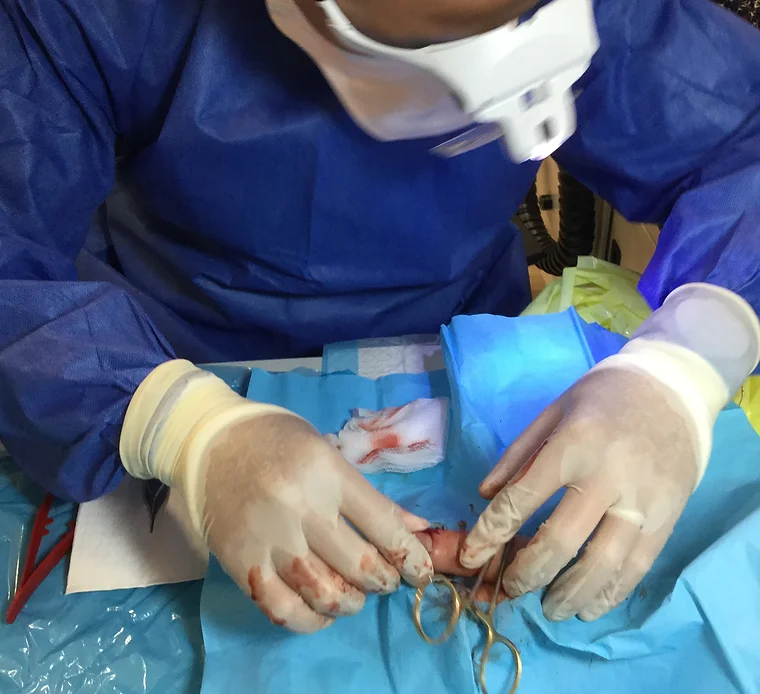First of all, stay calm and don’t panic. Abscesses are treatable. Most of the time small abscesses can be managed easily in an outpatient setting. However, for larger abscesses, you may need to be admitted to a hospital for further treatment.
What is a skin abscess?
A skin abscess is a pocket of pus underneath the outer layer of skin. It is similar to a pimple, but larger and deeper under the skin. It forms when the body tries to protect itself from an infection by creating a wall around it. This is due to a bacterial infection which has resulted in the bacteria multiplying. Pus is a combination of thick fluid containing dead tissue, cells, and bacteria. Your body often produces pus when it’s fighting off an infection caused by bacteria. Depending on the location and type of infection, pus can be many colors, including white, yellow, green, and brown.
Who is more prone to abscess formation?
- Children
- Elderly over the age of 65.
- Patients who
- have a weakened immune system
- recently been hospitalized
- have received an organ transplant.
- currently on chemotherapy or you recently received chemotherapy.
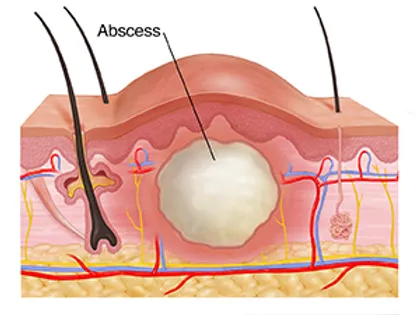
When should you be more concerned about an abscess?
- The skin abscess is on your face or spine. If left untreated, the abscess may spread to your brain or spinal cord.
- The abscess is large, hasn’t healed within two weeks, and you also have a fever.
- The abscess appears to be spreading to other parts of your body.
- The abscess is becoming more painful or is throbbing.
- The limbs are swollen on the site of the abscess
- The skin around the abscess is swollen or extremely red
Usually, it is more preferable to get treatment for the abscess before allowing the abscess to worsen till such a state.
So how can abscesses be treated?
It really depends on your pre-existing medical conditions. For example, if you have existing medical conditions that affect wound healing or lower immunity, such as diabetes, it may be prudent to get your abscess treated aggressively.
Your doctor may offer you some or all of the following modes of treatment:
- Antibiotics. The abscess is due to a bacterial infection, and hence antibiotics are almost always needed to treat such infections. Your doctor may choose to put you on a few days of antibiotics first to gauge the response of treatment. This is usually done for smaller abscesses which may resolve after a course of antibiotics.
- Minor surgery in a GP clinic. Your doctor may offer this treatment either as a first modality or after a trial of antibiotics have failed to resolve the abscess. You need to discuss with your doctor the pros and cons of such a treatment as this is a surgical procedure which carries with it inherent risks.
What does abscess surgery involve?
In a GP clinic, abscess surgery usually involves a small incision above the abscess to allow the pus to drain out. In some cases, the skin layer above the abscess may be removed. After that the wound is inspected thoroughly to break up all other pockets of pus.
A lot of antiseptic wash is then used to clean out most of the bacteria. Packing with gauze with antibiotics is then applied inside the wound. Finally, a dressing is applied above the wound site.
Usually, patients are discharged from the clinic with a course of oral antibiotics and painkillers.
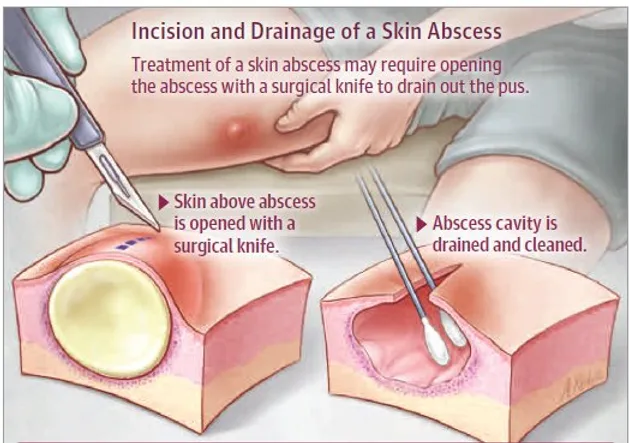
What is the recovery after abscess surgery like? How long do I need to take to recover?
For uncomplicated cases, it usually takes 10 days to 2 weeks for small abscesses to heal properly.
You will need to visit your doctor who did the surgery every day for the first 5 days at least, for regular wound dressings, as well as for the doctor to check on the status of the wound. Infection control is the most important consideration during these visits and your doctor will need to assess for any signs of infection. If there are signs of infection, different types of antibiotics may be needed.
After 5 to 7 days of regular wound dressings, your doctor may choose to see you every other day for wound dressings. Usually at the 10th to 14th day, most small abscesses will be nearly fully healed, if there are no complications, and hence your doctor will discharge you from further follow up.
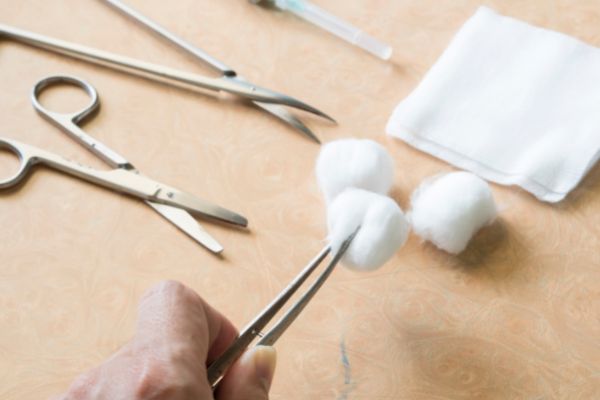
How can I avoid having another abscess? Will this ever happen again?
It is hard to predict if you will develop another abscess, but there are several strategies to reduce the risk of recurrence.
You should optimise your health as much as possible. Having a healthy diet and exercise will reduce your chances of getting diabetes. Diabetes is a strong risk factor in abscess formation, and hence, having a healthy lifestyle will reduce your risk of abscess formation.
Cleanliness and hygiene for your skin is important. Reducing the amount of bacteria on your skin will naturally reduce your risk of abscess formation. In some studies, increased hygiene practices led to a 50% reduction in incidence of bacterial infections of the skin.
Some of these hygiene practices include
- Regular bathing and frequent hand washing with soap and water or alcohol-based hand sanitizers.
- Patients and their contacts should avoid sharing personal hygiene items (e.g., towels, deodorant, cosmetics, brushes, razors, toothbrushes, or other items that come into contact with the skin).
- Using pump or pour lotions (rather than those in jars)
- Keeping fingernails clean and trimmed short,
- Changing underwear, sleepwear, towels, and washcloths daily
(References:
Prevention of Recurrent Staphylococcal Skin Infections
C. Buddy Creech, MD, MPH, Duha N. Al-Zubeidi, MD, and Stephanie A. Fritz, MD, MSCI)
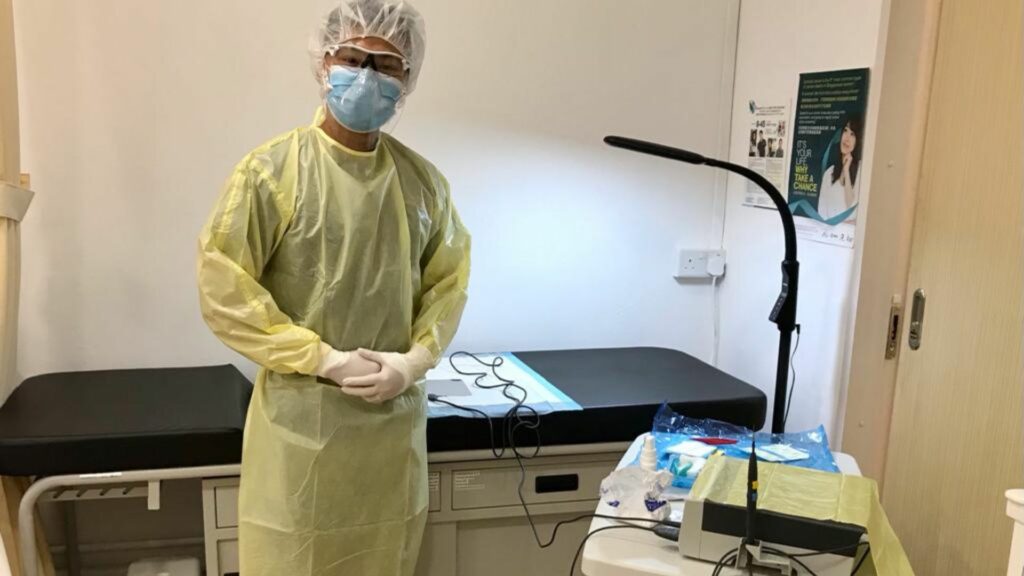
If you are worried about a growing abscess or you are not sure if you have an infected pus collection, come down to consult our doctors to find out more. If treated early, you might just need antibiotics and observation. By the time the abscess gets larger, you might require incision and drainage – consult our doctors on how to proceed.
Dr Lee Joon Loong is the doctor who does the procedures in Paddington Medical Clinic. Feel free to book an appointment down below or whatsapp us for an appointment. Take care and stay healthy!
GET IN TOUCH
Schedule a Visit
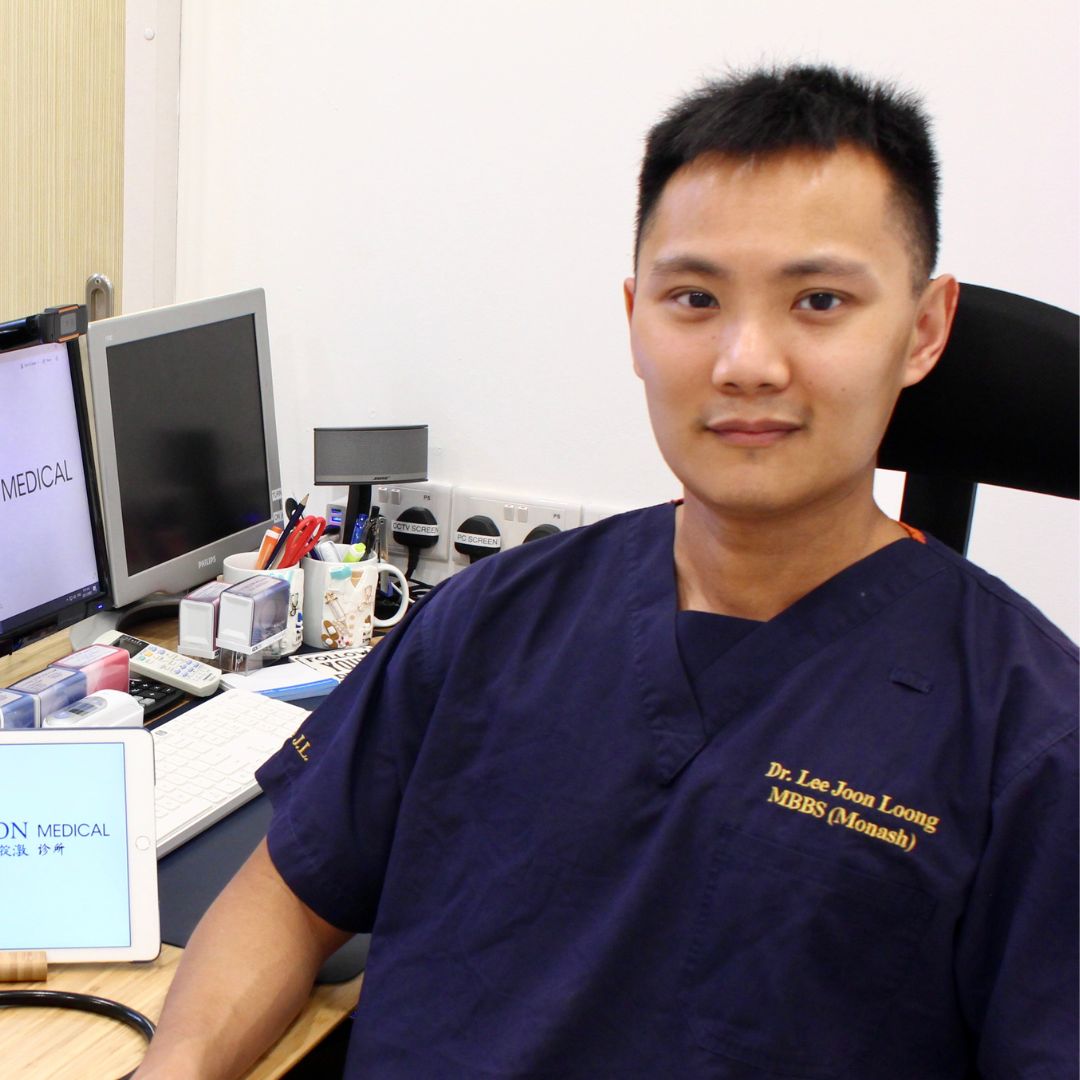
Dr Lee Joon Loong
Medical Director
MBBS (Australia)
Graduate Diploma in Geriatric Medicine
Designated Workplace Doctor (CAW)
EIMS Primary Care Physician
Certificate Course in Andrology (Men’s Health)
Dr Lee is in Clinic on Monday, Wednesday, Friday, Saturday and Sunday.
Dr Lee’s surgical procedure days are on Tuesday and Thursday

